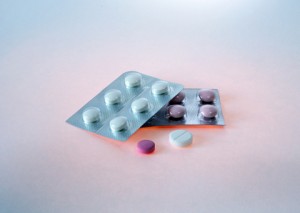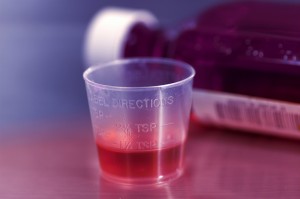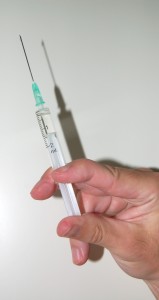Over-the-Counter Drug Addiction
 News reports about the use and abuse of prescription drugs are hard to avoid, and even harder to ignore. For example, a gynecologist published a scathing article on the Fox News website in May of 2012, reporting that his identity had been stolen by a person hoping to obtain strong painkillers without a valid prescription for those drugs. Stories like this are important, but it’s also important to remember that prescription drugs aren’t the only dangerous substances lurking within the walls of a pharmacy.
News reports about the use and abuse of prescription drugs are hard to avoid, and even harder to ignore. For example, a gynecologist published a scathing article on the Fox News website in May of 2012, reporting that his identity had been stolen by a person hoping to obtain strong painkillers without a valid prescription for those drugs. Stories like this are important, but it’s also important to remember that prescription drugs aren’t the only dangerous substances lurking within the walls of a pharmacy.
In fact, over-the-counter (OTC) drugs might be just as dangerous as prescription drugs, and addictions to these substances might be even more difficult to overcome without help.
Abuse vs. Addiction
Understanding the addiction process sometimes means learning a few vocabulary terms. When learning about OTC drugs, for example, it’s useful to know the difference between abuse and addiction, as some OTC drugs are clearly associated with compulsive use and addictions, while others have been linked to abuse and not to addiction.
Over-the-counter medications are generally considered safe and effective, as long as they’re taken in very precise ways. The developers of these drugs have run very specific tests, determining what dosage will bring about a specific effect without causing the person undue harm. Anytime a user decides to ignore these instructions and take the drug in a different way, abuse is occurring. While over-the-counter drug abuse is dangerous, addictions to these drugs can bring about even more severe consequences. An addiction has taken hold when a person’s use of the drug is compulsive. At this point, the person is unable to control the use of the drug. Instead, the drug use is controlling the person.
 People who are abusing any of the drugs mentioned below should be confronted about that use, and offered the opportunity to access help. Those who have addictions to the drugs mentioned below, on the other hand, might need more intensive help in order to overcome their problems. For these people, a rehab program for addiction might be the best place to get that help.
People who are abusing any of the drugs mentioned below should be confronted about that use, and offered the opportunity to access help. Those who have addictions to the drugs mentioned below, on the other hand, might need more intensive help in order to overcome their problems. For these people, a rehab program for addiction might be the best place to get that help.
Diet Pills and Laxatives
In our weight-obsessed culture, both women and men feel a remarkable amount of pressure to stay thin, and they may resort to using pills to bring about the effects they crave. To keep up with the rising demand for quick-fix weight solutions, health food stores often have an entire aisle devoted to diet pills. These capsules may seem benign, but according to the National Youth Anti-Drug Media Campaign, diet pills can contain remarkably addictive ingredients such as ephedrine. This ingredient is similar in structure to amphetamine and methamphetamine, meaning that high doses of diet pills might provide the user with a sense of great power, as well as a feeling of euphoria and happiness. Over time, the user might need to keep taking diet pills in order to keep those happy feelings flowing, and keep a crashing sense of depression at bay. When a user is taking drugs just to keep withdrawal symptoms at bay, addiction has set in.
Herbal diet pills, which are sometimes sold as a “natural” alternative to chemical-laden appetite suppressants, can contain dangerous ingredients such as:
Dangerous Ingredients
- Sibutramine
- Chitosan
- Chromium picolinate
- Ephedra sinica
Ingredients like this may be natural, as many of these items come from plant sources, but within the human body, these ingredients set to work on the same receptors used by stimulant drugs such as cocaine. The user might experience a fast heart rate, or the user might simply feel revved up and happy. Speed-based drugs like this are widely considered addictive, and it’s not uncommon for people to begin using herbal supplements for weight loss, and then quickly progress to taking the drugs for recreational purposes.
In the battle to lose weight, some women resort to taking very large doses of laxatives or emetics. By flooding their bodies with these over-the-counter drugs, women hope to keep the calories in the foods they eat from hitting the body’s delicate systems. It’s a good theory, but it can have disastrous results. According to an article in the Journal of Adolescent Health, people who abuse ipecac syrup in this way can face heart rhythm abnormalities, as well as dehydration. Women who abuse laxatives and emetics may not be addicted to the drugs, as there is no evidence to suggest that the ingredients in these drugs cause brain changes that would lead to compulsive use, but women who do abuse laxatives and emetics may need psychiatric help in order to control their mental illnesses. Since the drug abuse is associated with eating disorders, getting help for those disorders could help these women to stop their habits and lead healthier lives.
Cold Medication
 Sniffles, aches and fevers are the main targets of cold medications, but some preparations contain ingredients that can bring about an entirely separate set of symptoms. For example, some cold medications contain the ingredient dextromethorphan, which can produce euphoria when taken in high doses. Cold medications with this ingredient are a favorite drug of abuse for teenagers, with about 1 in 16 high school students reporting abuse of that medication in the 2007 Monitoring the Future Survey. It’s unclear how many adults also abuse this drug, but since the drug is so prevalent and potent, it’s likely that abuse isn’t limited to teens.
Sniffles, aches and fevers are the main targets of cold medications, but some preparations contain ingredients that can bring about an entirely separate set of symptoms. For example, some cold medications contain the ingredient dextromethorphan, which can produce euphoria when taken in high doses. Cold medications with this ingredient are a favorite drug of abuse for teenagers, with about 1 in 16 high school students reporting abuse of that medication in the 2007 Monitoring the Future Survey. It’s unclear how many adults also abuse this drug, but since the drug is so prevalent and potent, it’s likely that abuse isn’t limited to teens.
People who become addicted to dextromethorphan may take very high doses of the drug, in order to bring about the effects they crave. Each time they take the drug, they may need to bring in just a little more, to overcome the body’s natural tolerance for the drug.
Extremely high doses of the drug have been linked to:
- Numbness
- Nausea
- Increased heart rate
- High blood pressure
- Brain damage due to slow, shallow breathing
People who combine cold medication with other substances, including alcohol, could face an even higher risk of side effects, as the drugs wind together and strengthen one another. Some people may become so intoxicated on these combinations that they simply fall asleep, and stop breathing a few moments later.
Other Commonly Abused OTC Drugs
Manufacturers sometimes place sleeping medications in with painkillers,
hoping to alleviate pain and allow people to sleep so their bodies can heal. The sleeping aids can become
pain and allow people to sleep so their bodies can heal. The sleeping aids can become
habit-forming for some people, and they may begin taking the drugs compulsively, in order to experience a euphoric high from the ingredients. Taking large doses of the painkiller included in these pills can be extremely dangerous, however, as the liver is required to work overtime to clear the blood and return the body to a normal level of functioning. Some people develop serious liver damage, due to the abuse of these drugs.
Steroids are other drugs of concern for addiction experts, as these drugs can also cause changes in the brain that lead to compulsive use. It’s commonly assumed that men are the primary abusers of these drugs, as the culture seems to value bulging muscles on men, but there is some evidence to suggest that women are also falling prey to the use and abuse of some types of steroids. For example, a study in the journal Psychotherapy and Psychosomatics found that 18 percent of gym-going men took adrenal hormones or androstenedione, and 3 percent of women did the same. This study found no women who were taking anabolic steroids, but other studies have found women who abuse these drugs.
Speaking Up and Getting Help
In a study conducted in Ireland, researchers found that about one-third of participants had personally encountered some form of OTC drug abuse. Family members and friends might be in the best position to spot this abuse, and they might be able to speak up and speak out, helping the person to see the need to get help. If left in place, the addiction can progress, but with help, the person can get needed help and move forward with life.
At The Orchid, we specialize in providing care to women who are struggling with addiction. Our program is specifically designed just for women, and we utilize a variety of techniques to help women in our care develop the skills they need to live a sober life. We’d like to help you, too. Please call our toll-free number now and find out more about our program.
Free. Easy. Confidential.
Call Today: 1-800-469-9124
Who Answers?We have caring admissions counselors available 24/7
